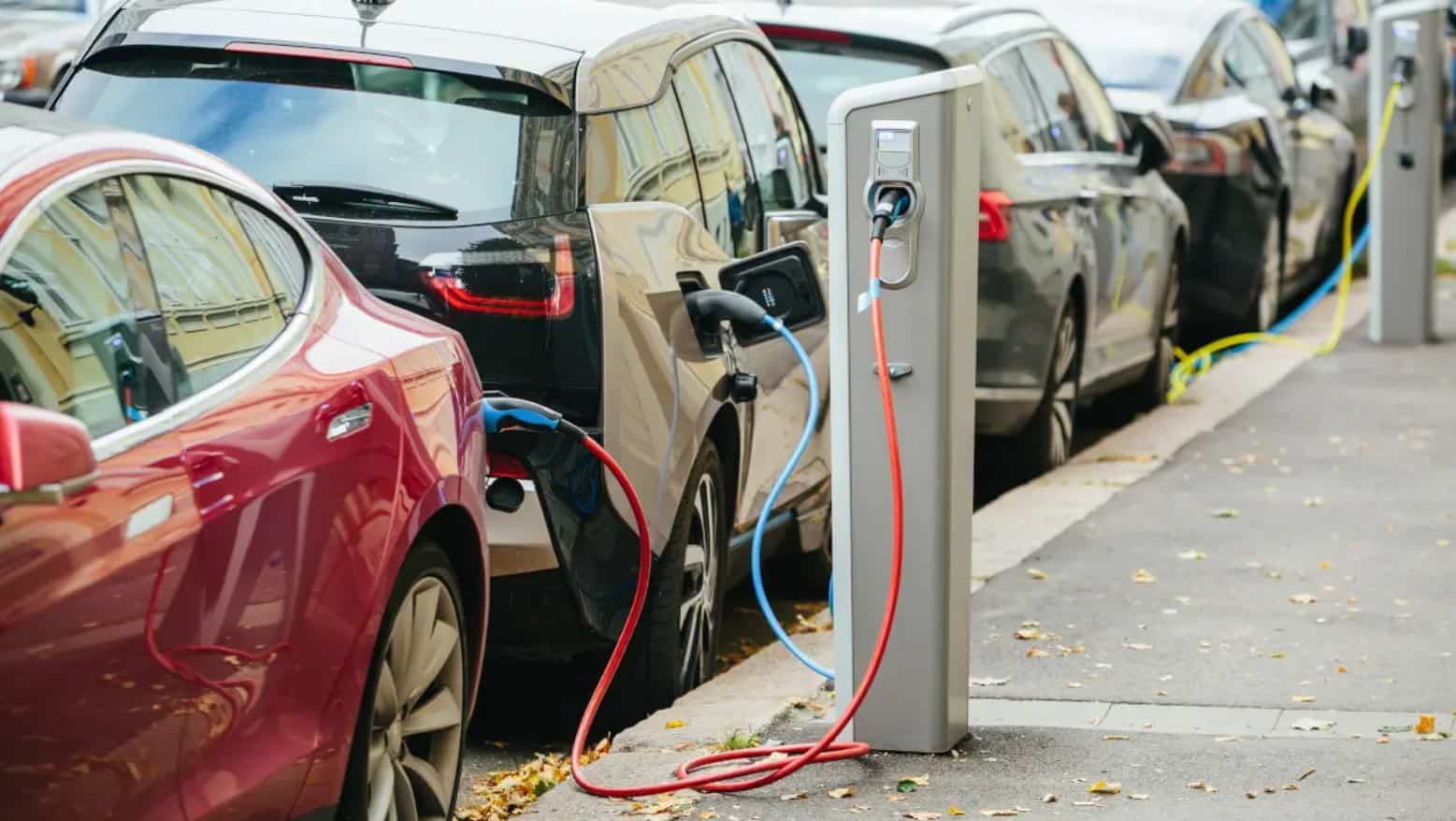There are clear environmental benefits to driving an electric vehicle (EV). But will it leave you stranded between charging stations? Here we’ll look at how an EV’s battery range compares to a tank of gasoline.
How Far Can You Drive an EV on a Single Charge?
“Range anxiety,” or the fear that an EV won’t get you as far as a gasoline vehicle, is still a prevalent concern among those looking to buy a battery-powered car. But is that concern still warranted?
In the early days of all-electric cars, their range on a single charge was considerably less than you could get with a gas-powered sedan. Some, like the Mini Cooper Electric, still get less than 200 miles on a charge. But models like the Nissan Leaf and Tesla Model Y can get anywhere from 226 to 326 miles on a full battery. That’s good to know when you have to plan your trip around charging stations. Some electric models are rated for a range of over 500 miles per charge.
By contrast, an average gas-powered sedan can get 300 miles or more out of a single tank. Take a small car like the Honda Civic, for example. Its fuel tank is about ten gallons, and if it gets around 30 miles per gallon, that’s 300 miles on a full tank. Chances are you’ll fill that up somewhere around the 250-280 mile mark.
Of course, there are multiple factors that affect a car’s mileage aside from the EPA’s estimated miles per gallon. Whether you’re driving in a city or on a highway, the climate, and the condition of the engine can all mean more or less range whether you’re driving a gas car or an EV. Long periods of high-speed highway driving, for example, will sap an EV’s battery more quickly. When Car and Driver tested multiple models of EV at steady highway speeds of 75mph, almost every model came in under the EPA estimated mileage (though many still cleared 200 miles, and the Tesla long-range still got over 300).
Though road trips wore down an EV’s battery more quickly, chances are they’d hold up to your daily commute just fine. According to data from the Federal Highway Administration, people in the U.S. drive an average of around 40 miles per day. Even if your commute was 40 miles one-way, you’d still get there and back with juice to spare as long as you left with a nearly full charge.
Does the Weather Affect EVs More Than Gas Cars?
Like a lot of questions concerning mileage, the answer is: it depends. Cold weather can sap an EV’s battery faster, especially in highway driving conditions, when it’s moving. That’s because an EV pulls power from the battery to run the car’s heating and other electrical systems. The motor also spins more rapidly at higher speeds, meaning higher energy consumption. Jeremy Michalek, a co-founder of the Vehicle Electrification Group and professor at Carnegie Mellon University, co-authored a study that showed cold temperatures can reduce an EV’s range by up to half.
That said, even in cold weather an EV can hold its own in stop-and-go traffic because of the car’s kinetic braking system that turns braking energy into power for the vehicle. EVs also turn their engines off when idle, conserving power, but can still run the heat and other peripherals. Gas vehicles have to keep the engine on and continue burning fuel to do the same thing.
PolitiFact has in fact debunked multiple claims that EVs wouldn’t last as long in cold weather traffic jams as gasoline vehicles. Whether a car has the energy to get through extreme weather conditions also depends on how much fuel/energy it had when those conditions began and how efficiently that energy gets used.
Is It Cheaper to Charge an EV Than Fill a Gas Tank?
It definitely can be cheaper, if you charge your EV at home. The Wall Street Journal calculated the cost of driving an EV versus a gas vehicle for a year in several large U.S. cities and found people could save hundreds of dollars a year when they charged at home instead of filling up on gas. In Los Angeles, for example, the average yearly savings was $721.
This comes with a caveat, however. Charging an EV at home may be cheaper, but if you have to use a fast-charging station on a road trip, it could cost you more in the long run. Plus, at-home charging excludes people who live in condos or apartments where charging might not be as readily accessible.

